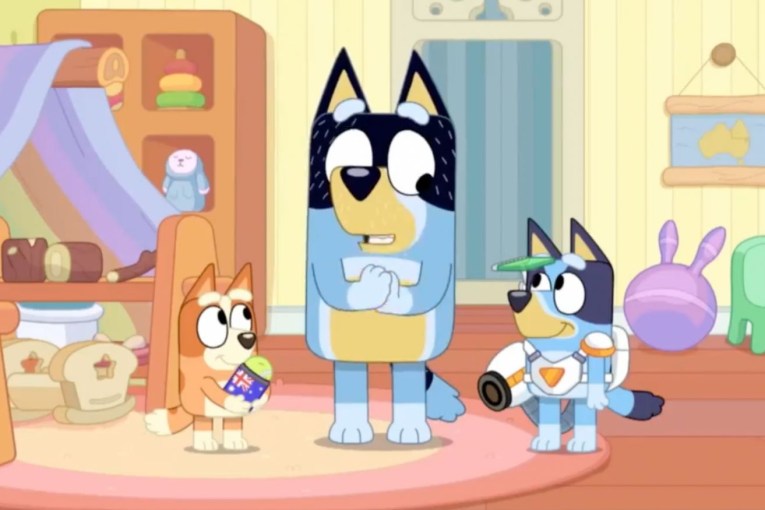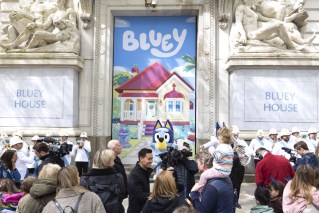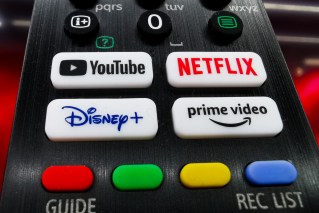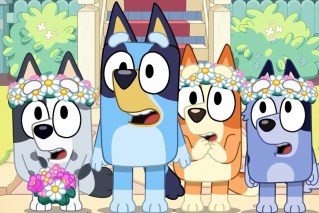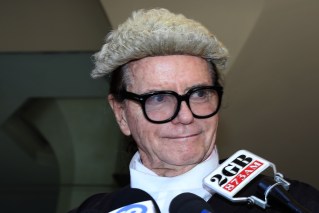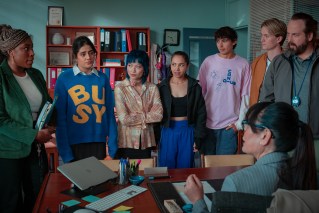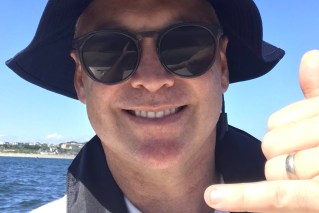Actor Josh Thomas pleads: Please gong me
Please Like Me may be the most unassuming and easygoing champion a revolution has ever had.
This week the ABC coming-of-age dramedy, written by and starring Josh Thomas, was nominated for an International Emmy and in the process cemented its status as one of Australia’s most successful television shows by almost every measure except the long-standing benchmark: overnight ratings.
Though creative quality is an inherently unquantifiable and subjective measure, it’s now beyond question that Please Like Me is a show of exceptional quality.
For the ABC’s Head of Comedy Rick Kalowski it is almost peerless.
“It’s a highly idiosyncratic and highly original show,” he says. “There’s only one other [comparable] show in the world about finding yourself in the 20s which is Girls. There’s a guys one which is Please Like Me and a girls one which is Girls.”
• International Emmy nod for ‘Please Like Me’
• Mr ‘Very’ Popular: the USA likes Josh Thomas
• Josh Thomas ‘wins’ Bob Katter Q&A bout
The comparison has often been made in the US media where the series airs on the cable channel Pivot.
The Australian first series was meant to act as a pilot for an American remake by Pivot, but deciding they couldn’t beat it, Pivot joined the original and have now co-financed the second and third series (currently being written).
Thomas isn’t buying into any suggestions that the Emmy nomination and US deal constitute a new generation of cultural cringe sending our most creative talents overseas to be branded a success.
“Yeah well that’s not happening! We succeeded overseas a year ago and our ratings went down,” he said.
Kalowski concurs.
“It’s no longer the case that people have to go overseas to make it. In the US now there is such enormous hunger for content, especially such hunger for comedy, they now are across everything the ABC is doing,” he said.
 At home the team behind Please Like Me are just hoping to stop reading stories bemoaning the low ratings for such a good show.
At home the team behind Please Like Me are just hoping to stop reading stories bemoaning the low ratings for such a good show.
“Every one of those articles is lovely,” said series producer Todd Abbott. “[But] you do get the sense that the message people take from that is the part that says people aren’t watching.”
Thomas is somewhat more frank.
“Good, meaning journalists are writing these nice articles about the show, about how no one is watching us. I just wish they’d shut up about it!”
The possible conclusions are two-fold: the wider population doesn’t want to watch a show that is about as close as possible to being objectively “good” or, just possibly, they are watching but the system for measuring that isn’t working.
At first glance, as all the well-meaning articles have suggested, the ratings for this series have been “incredibly disappointing” in the words of Abbott, and significantly lower than season one.
“There is no question that the overnight numbers for Please Like Me for season two are a disaster,” admits Kalowski. “I bear some responsibility for that because we put the show on the wrong night.
“We’re the oldest skewing network,” he notes and in trying to second-guess their younger viewers they lost them.
The ABC aired season two on Tuesdays on ABC2 in an effort to minimise online piracy by airing closer to the American Saturday night broadcast, however Kalowski acknowledges it meant it was moved from the traditional Thursday night comedy slots where they get good switchover from the main channel and instead faced reality shows on the commercial networks which ate into the audience.
 The result, at face value, was simple: the audience nearly halved, with 103,000 watching the season premiere across the five metro capitals. And so the die was cast, but as Abbott notes “the way that Australian media reports on success in television is still a pretty old school way of reporting”.
The result, at face value, was simple: the audience nearly halved, with 103,000 watching the season premiere across the five metro capitals. And so the die was cast, but as Abbott notes “the way that Australian media reports on success in television is still a pretty old school way of reporting”.
That the system is broken is the old refrain from low-rating shows, of course, yet there are real numbers to back it up. Kalowski notes that the network’s most talked about entertainment shows – The Code and Utopia have their ratings boosted by 20-25 per cent when the seven-day “catch-up” figures are included, referring to those viewers who record the show digitally to watch at their convenience.
“With Please Like Me we were seeing 80-90 per cent,” says Kalowski. “Which we’ve never seen before. Which just confirms we are living in very interesting times. The way people are watching TV is changing radically under our feet right now.”
Abbott add: “It’s consistently in the top three shows on iView each week. It’s only Dr Who getting bigger numbers. I think we really do exemplify a completely new way of consuming television.”
Giving substance to his analysis, Kalowski also acknowledged that despite the first-glance numbers, the network is closely exploring the idea of moving the show to the main channel for season three.
For Thomas, the channel choice doesn’t matter much ever since he mistakenly interpreted the shift to the second channel for season one before it launched.
“The only feedback I had was it was moved to ABC2 I thought they were saying the show was shit.”
He feels iView and catch-up “is how you expect young people to watch television now”.
As such he’s measuring the show’s success by other means.
“It’s doing really well on torrents in Russia and South Korea and with Spanish people. We get a lot of memes subtitled in those languages,” he says.
Of course there is one other measure.
“I want that f*****g trophy!” he says of the International Emmy now in his sights.
“I do think awards are kind of nonsense. If I get nominated for a Logie I get curmudgeonly because awards are silly. You can’t give a prize to the most creative idea. It doesn’t make sense.”
So why is an Emmy different? Simply because it looks different.
“I really want the actual award. I think Emmys are beautiful.”
Australian shows to win an International Emmy
• Go Back to Where You Came From (2013)
• Dirtgirlworld … dig it all (2013)
• The Amazing Race Australia (2012)
• Scorched (2009)
• Exile in Sarajevo (1998)
• Captain Johnno (1988)
• A Town Like Alice (1981)
• Talbot Duckmanton (1976)

